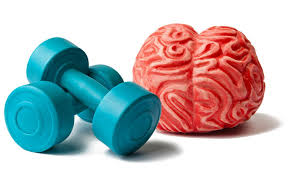What do you know about your resting and exercise heart rate? What should you know? Were you able to get an idea of what your normal resting heart rate is when you established some baselines for your vitals a couple of weeks ago? (See April 4th’s post: Welcome to Workout Wednesdays! http://andreaarthurowan.com/2018/04/04/welcome-to-workout-wednesdays/admin/ )
Before we get too far down the road with a discussion about heart rate, let’s start with the basics, so we can continue laying those important health and fitness tip brick foundations!
Heart Rate basics—
While you probably know what your resting heart rate measures—how many times your heart beats in a minute—do you know what that number actually tells you about your heart and your health?
Simply put, resting heart rate tells you just how hard your heart is working while at rest to supply your body’s oxygen needs. Just how many times does it have to contract in a minute to squirt blood through the pipes to get your body oxygenated for plain old activities of daily living, or sleeping, or sitting in a chair watching television?
Two more things your resting heart rate can tell you—
- Reveal your risk for heart attack, and
- Reveal your aerobic capacity—the amount of oxygen your body is able to consume, or the heart’s ability to pump oxygenated blood to your muscles.
As your oxygen supply needs change throughout the day, your heart will speed up or slow down to accommodate those needs. Or at least it should. What is “normal” for you, though, will depend upon your age, gender, and fitness level.
According to a Harvard Women’s Health Watch on-line article titled “What Your Heart Rate is Telling You,” says a 2010 Women’s Health Initiative study report indicated that a lower heart rate in post-menopausal women might protect against heart attacks. Those having a resting heart rate of 76 beats per minute (bpm) or greater were 26% more likely to have a heart attack or die than those having a resting heart rate of 62 bpm or lower.
They recommended having a chat with your doctor if your resting heart rate hovers consistently above 80 bpm. (For further reading, see the link at the bottom of this post.)
It’s also a good idea to take your resting heart occasionally (don’t just rely on a one-time measurement) so you can determine how, and if it’s changing. If you see a sudden change from what’s “normal” for you, it’s a good idea to discuss this with your physician. It may be a symptom or indicator of something going on with your heart or vascular health.
What you need to know about maximum heart rate in exercise—
Your heart rate usually rises during intense workouts, prolonged long-distance (aerobic) exercise workouts, stress and illness. Your heart’s maximum heart rate is the rate at which your heart is working at its hardest to supply oxygen to your body. In exercise, this is the rate that can only be sustained for several minutes.
Your maximum heart rate is a function of that aerobic capacity we already mentioned. When an exercise physiologist measures it, she’ll write in terms of VO2 max and actually measure the volume of oxygen you move through your lungs during exercise. To get an exact measurement, it’s a complicated, messy process of actually breathing into a tube during exercise, collecting your breath in a bag and then analyzing that volume through a special machine. The more conditioned you are, the higher your VO2 max usually is.
How do you calculate your maximum exercise heart rate?
Ever go to the gym, hop on a treadmill or stationary bike and see the maximum heart rate formula and exercise intensity graph to indicate where you should be exercising for your age?
The basic formula is: 220 – your age x 50 – 70%
Start with the number 220 and then subtract your age from that. If you’re 40 years old, it will be 180 bpm. So what does that tell you? It tells you that 180 bpm is the highest heart rate number you should obtain while exercising at your maximum level. But you’ve already seen that the maximum level can only be, and should only be, sustained for no more than several minutes.
So, unless you’re planning to exercise for just two to three minutes, how do you decide what heart rate you should be exercising at?
Well, it really depends upon what you’re trying to achieve. We’ll delve into those specifics in a future post, but, in general, you could aim for 50- 70 or 80% of 180. So the formula would look like:
Max HR formula: 220 minus your age multiplied by .50, .60, .70, or .80
If you’re aiming for middle-of-the-road, new exerciser level, that number would come in around 90 bpm. Doesn’t sound very high, does it? But it can be a sound level to aim for if you’re an exercise newbie, or just getting back into the swing of things following an illness.
HOWEVER, that formula is NOT the most accurate or desirable formula if:
—You are in good physical condition.
—You have a low resting heart rate.
So what is the most desirable formula? We’ll explore that in next week’s post, when I’ll give you that critical formula to help you better judge and develop your personal exercise intensity. *

One more (GREAT) reason to strive for a lower heart rate—
If lowering your risk of having or dying of a heart attack isn’t enough, maybe this other finding noted in Harvard’s article might give you a nudge to lower your heart rate.
“… a small controlled trial demonstrated that men and women with mild cognitive impairment who raised their aerobic capacity also improved their performance on tests of memory and reasoning.”
In later posts, you’ll learn more about how physical exercise doesn’t just help the body but improves brain function! And who doesn’t want to have a better, sharper brain?
Trivia Question?
Which athletes are notorious for boasting the highest VO2 maximum measurements? (You’ll learn the answer next Wednesday!)
Until next time,
Blessings for prosperity in all things—emotional, physical and spiritual!
Andrea
*You should always check with your doctor about what your target heart rate should be if you’re taking medication for a heart condition.
Link: Harvard Health article “What Your Heart Rate is Telling You https://www.health.harvard.edu/heart-health/what-your-heart-rate-is-telling-you
Photos courtesy of Google Images
